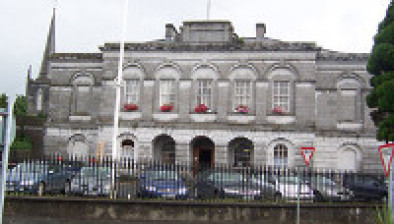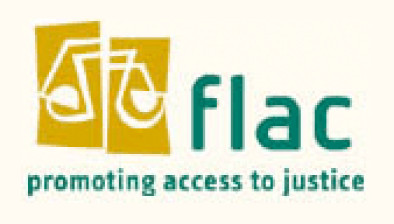Bar of Northern Ireland left disappointed by legal aid announcement

Pictured: Donal Lunny KC, chair of The Bar of Northern Ireland.
Northern Ireland’s justice minister has applied a “temporary sticking plaster” to the criminal legal aid system and is preoccupied with “ideologically-driven policy experimentalism”, the Bar of Northern Ireland has said.
Naomi Long yesterday told the Northern Ireland Assembly that she had accepted the recommendation of an independent review for a 16 per cent interim uplift to criminal legal aid fees, to be implemented as soon as possible.
A similar uplift will be applied in respect of civil legal aid “in order to ensure fairness in the profession”, she added.
The minister’s long delay in publishing the findings of the review, led by retired judge Tom Burgess, led to sharp criticism from the Law Society and from the Bar, which responded last month with industrial action.
Yesterday she also announced a new “Enabling Access to Justice” reform programme, with a programme delivery plan to be published for consultation next week.
In a statement, Bar Council chair Donal Lunny KC said: “The number one priority for the Department of Justice should be to stabilise a system of legal aid which is at serious risk of collapse because of long-standing underinvestment and the continued failure of the Department to conduct remuneration reviews when required to under statute.
“Barristers in civil and criminal practice are working at 130 per cent capacity as they contribute to dealing with post-Covid delays and to speed up justice for the benefit of all court users. Yet, the justice minister’s statement on legal aid reform failed to acknowledge the existence of an access to justice crisis.”
Mrs Long “omitted to mention the ongoing withdrawal of services on the part of the Criminal Bar Association” and also “failed to acknowledge the crippling payment delays that practitioners are subjected to at present”, he said.
Criminal barristers are currently refusing instructions in all Category A cases in the Crown Court, which include trials for murder and serious sexual offences.
“An immediate, albeit partial, uplift in legal aid fees is welcome but it will not restore fees to anywhere near where they should be and seems destined to be immediately eroded by other planned reforms,” Mr Lunny said.
“The approach being adopted will merely apply a temporary sticking plaster rather than the urgent cure that is required.
“Naomi Long MLA spoke of the ‘ambition’ of her Department regarding legal aid reform — the Bar would suggest that the Department is gravely underestimating the challenge of creating the conditions necessary in order to realise that ambition.
“Furthermore, contained within these proposed reforms lies the potential for unchecked Departmental overreach that would represent a retrograde attack on the independence of the legal profession, and in turn the judiciary, in this jurisdiction.”
The Bar alleges that the justice minister has been “selective” in adopting the recommendations of the Burgess report and that she “wants unnecessarily to duplicate regulatory scrutiny of the legal profession and fetter the independent expert judicial role of the taxing master”.
“In the circumstances, it is reasonable to ask why the Department seems to fear, rather than place trust in, the recommendations and reasoned decisions of independent experts,” Mr Lunny said.
Mrs Long was quizzed in the Assembly on Northern Ireland’s per capita spending on legal aid in comparison to its neighbouring jurisdictions.
She said the average spend on legal aid per adult in Northern Ireland was £67 in 2022-23, compared to £37 in England and Wales, £26 in Scotland and £20 in the Republic of Ireland.
However, Mr Lunny said she provided the figures “without providing the necessary and important context”.
“The minister once again quoted the total expenditure without explaining the associated demand and omitted to set out the direct correlation between public expenditure and the greater socio-economic challenges that exist in Northern Ireland,” he said.
“Unsurprisingly, this causal relationship results in public expenditure per capita being higher than the UK average in several areas and is certainly not confined to legal aid.”
He said the Bar “remains committed to engaging in good faith in meaningful consultation and collaboration with the Department of Justice in evidence-led reform in order to secure change to the system of legal aid which will enhance, rather than obstruct, access to justice and which will safeguard, rather than erode, the essential independence of both the legal profession and the judiciary”.
“It is not too late for the Department to choose to make a similar commitment rather than embarking on a process of ideologically-driven policy experimentalism,” he added.










